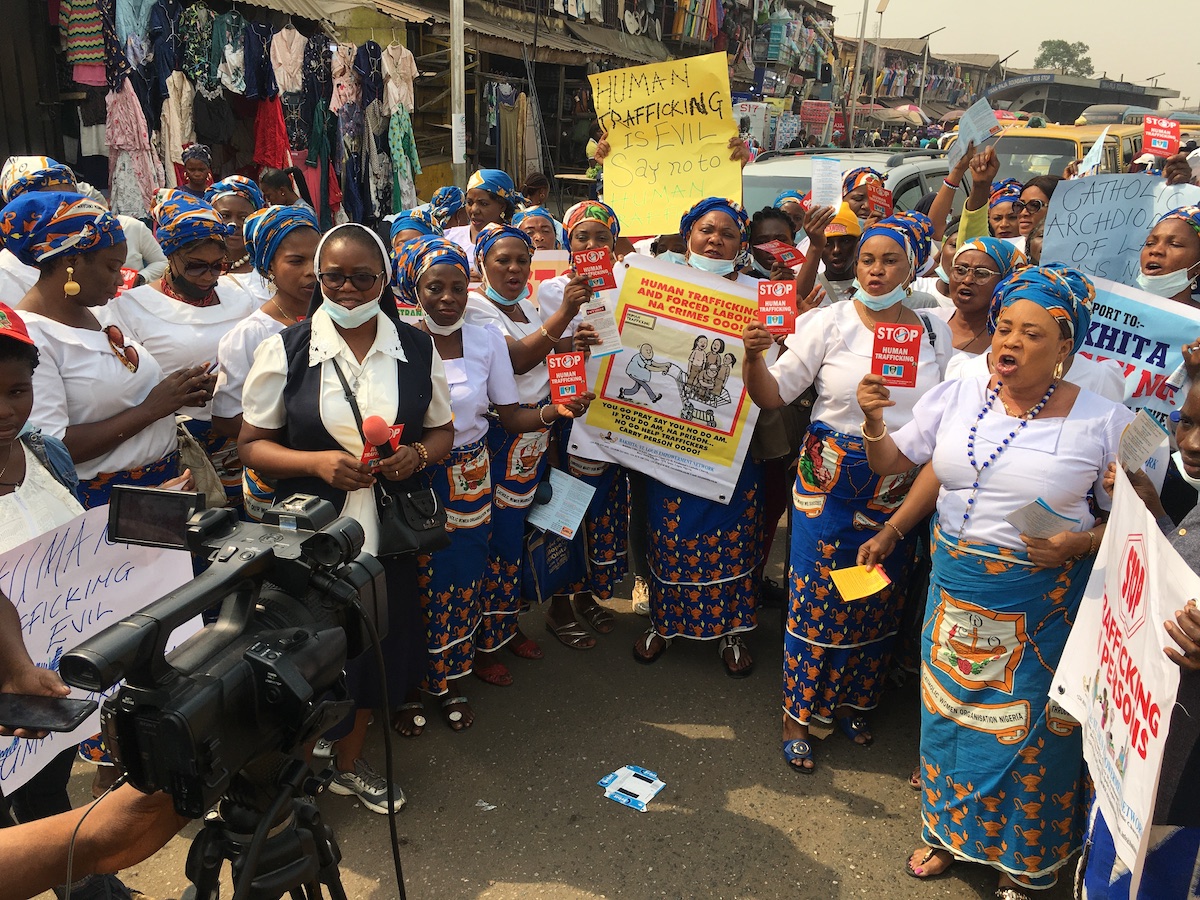The Sovereign Order of Malta joins the international community on 30 July, World Day Against Trafficking in Persons, condemning any form of human trafficking and modern slavery. “Human Trafficking is a global problem; no country is immune to it. It therefore requires a global response. The Order of Malta is committed in raising awareness of this terrible scourge and in protecting victims of human trafficking” said Albrecht Boeselager, Grand Chancellor of the Sovereign Order of Malta.
Since 2017 the Order of Malta has been actively engaged in promoting a better understanding of this terrible phenomenon with the appointment of two Ambassadors tasked with combating human trafficking: based in Geneva, Michel Veuthey (Ambassador to Monitor and Combat Trafficking in Persons) and based in Africa, Romain Champierre de Villeneuve (Ambassador at-large for Africa). Together they strengthen the commitment of the Order of Malta in preventing the trafficking of humans and protecting the victims, with projects both at local and diplomatic level.
At each session of the Human Rights Council in Geneva, as well Vienna and New York, the Order of Malta makes interventions on various forms of human trafficking or contemporary slavery: forced labor, forced marriages and motherhood, sale of children, pornography, forced organ harvesting. The Order of Malta is also increasing partnerships with universities in France, Italy, Switzerland and the USA. In September last year, during the G20 Interfaith Forum in Bologna, the Order of Malta contributed to the many discussions and panels with interventions on strengthening dialogue and cooperation to weaken human trafficking, underlining the important role of religious leaders and religious congregations in the protection and assistance to victims of human trafficking.
Over the past years a number of webinars have also been organized by the Order of Malta precisely to draw attention on the complex mechanisms of human trafficking, forced labour and sexual exploitation.
In 2019 the Order of Malta organized a conference in Paris bringing together dozens of experts, including diplomats, academics, policy makers, representative of European and Nigerian institutions, Catholic organizations, and psychosocial counsellors to strengthen synergies and partnerships between the different actors engaged on the ground and at the international community level.
With the massive influx of people feeling wars and poverty, the Order of Malta is raising attention on the risk of refugees falling victims of human traffickers. To this end its Polish Embassy has issued an alert containing safety rules for refugees which is being distributed along the main exit routes in Ukrainian, English and Polish. Malteser International is coordinating the global effort of the Sovereign Order of Malta, whose Associations and Relief and volunteer corps are on the ground to assist the refugees.
“Today’s measures to prosecute traffickers and to protect and shelter victims are notoriously insufficient and inefficient. Legal instruments and mechanisms exist at the domestic, regional, and global level, but they are not up to the challenge of the increasing scourge of modern trafficking” explains Ambassador Veuthey. “These legal mechanisms only prosecute a handful of criminals and offer insufficient numbers of shelters and services to victims. indeed, the number of criminal convictions related to human trafficking is extremely low: 1 in 2,154 cases of slavery results in a conviction – a rate of 0.047%”, Michel Veuthey adds.
On the root causes, the Order of Malta shares the view that the demand for trafficking should be criminalized, taking into account the different forms of abuse, slave labor or sexual exploitation. The fight against human trafficking, particularly related to demand, must be carried out through a multidisciplinary, multidimensional, and coordinated approach between the different actors.
Finally, the Order of Malta advocates for physical and psychological protection of the victims of human trafficking in addition to legal protection, accompanied by all the medical and social services which they may need.










